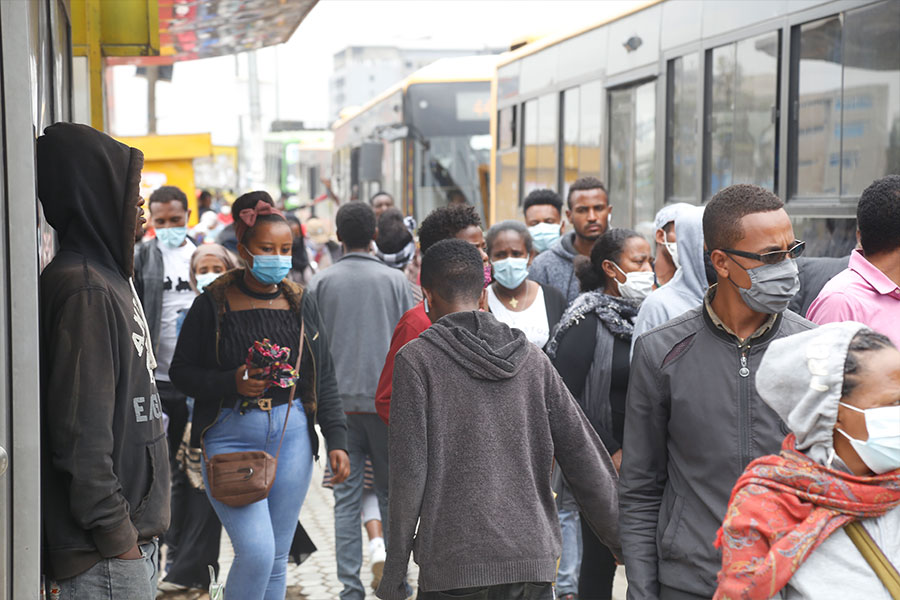
Viewpoints | Mar 14,2020
Mar 7 , 2020
By Christian Tesfaye
We have suddenly found ourselves gripped with patriotic fervour to defend Ethiopia’s sovereign rights over the filling and operation of the Grand Ethiopian Renaissance Dam (GERD). #ItsMyDam is trending, and it seems that Ethiopians across the political aisles have found an issue over which they can unite.
But it is also a complicated subject matter that requires an understanding of how loyalties are shaped and reshaped in a world where money can buy almost anything. Our dilemma today bears great resemblance to that of Egypt's back in the 1970s, as it mulled signing a peace treaty with Israel.
For 12 days over four decades ago, Egyptian President Anwar el-Sadat and Israeli Prime Minister Menachem Begin met with United States President Jimmy Carter at Camp David to negotiate peace between their respective countries.
The historic Egypt-Israel Peace Treaty was signed in 1979. This was just a decade after the Six-Day War, which was fought between Israel on one side and mainly Egypt, Syria and Jordan on the other. Throughout the 1970s, relations between Israel and the Arab world were highly tense, much worse than the situation today.
The agreement included the mutual recognition of each country by the other, cessation of war between the two countries; the complete withdrawal of Israel's armed forces and its civilians from the rest of the Sinai Peninsula; free passage of Israeli ships through the Suez Canal; and recognition of the Strait of Tiran and the Gulf of Aqaba as international waterways. Up until 1979, no member of the Arab League recognised Israel as a state. Egypt was the first to do so.
There was a price to be paid on Egypt’s side for agreeing to sign the treaty. The country was suspended from the Arab League, which had its headquarters in Cairo. The Palestinians were not happy about it either and considered it a betrayal.
The steepest price was paid by el-Sadat himself, who would be assassinated two years later. He was killed by an army officer who later confessed that he did not appreciate the efforts to secularise the Egyptian state and the President’s decision to strike the peace deal.
This is not to say that there were no upsides for the North African country. Egypt found its way into the US’ heart from that point on. Since 1979, aid to the country has averaged at least 1.5 billion dollars, around twice what the country used to get since the late 1940s. Between 1948 and 2011, the country has received 71.6 billion dollars from the US in economic and military assistance, a figure rivaled only by Israel, according to the Washington Post.
The country also gets an array of packages to its economy, including the ability to deposit its funds in an interest-bearing account at the Federal Reserve Bank and to engage in cash-flow financing to pay for military equipment. Such goodwill on the US’ side is predicated on the interests of the North American superpower.
One of these interests is maintaining the Israel-Egypt peace treaty, according to the US’ Congressional Research Service.
It would thus be amiss of us not to ask if the US will offer a deal along the same lines to Ethiopia in the event it concedes to its terms?
Considering the transactional style of leadership of President Donald Trump, as well as the US' foreign policy history, a financial offer to Ethiopia, in the form of economic assistance, would not be out of character.
Unfortunately, we cannot say for sure given the secretive nature of the negotiations. It has been evident that Egypt prefers postponement of the filling of the dam, but it has not been clear what Ethiopia could get in return for agreeing.
But what do Ethiopians believe is a good price for the country's rights over the Blue Nile?
This is a vulgar question to ask for many. The Western world has forgotten the value that traditional societies attach to land, country, faith and community. The same goes for a project such as the GERD.
Its value is not merely economic. It is, today, a symbol. The Dam, which was planned as far back as Emperor Haile Selassie’s time, is a representation of the heights we can reach when we are united, determined and driven. For a country that has for long served as a poster child for famine and poverty, the GERD is the physical manifestation of our dream of prosperity and development. It is a fulfillment of what we had long assumed to be our destiny. It is not a matter of money. It is a matter of dignity.
The countries on the other side of the table should be able to understand this.
But the fact that the project has a greater symbolic meaning to the public should not be reason enough to fail to ask what the US is willing to offer.
The political elite seem to suggest that no price could justify signing over the rights to a resource of such value. But it should be incumbent on Prime Minister Abiy Ahmed’s (PhD) administration to reveal to the public what the United States is willing to offer Ethiopia.
Only then will we know how determined we are to pull ourselves up by our bootstraps for the sake of a project that is closer to our hearts than we expected.
PUBLISHED ON
Mar 07,2020 [ VOL
20 , NO
1036]


Viewpoints | Mar 14,2020

Commentaries | Feb 19,2022

Viewpoints | Aug 06,2022

News Analysis | Aug 07,2021

Radar | Apr 24,2021

Fortune News | Sep 06,2020

Commentaries | Aug 29,2020

Life Matters | May 23,2021

Films Review | Sep 14,2019

Editorial | Feb 08,2020

My Opinion | 131770 Views | Aug 14,2021

My Opinion | 128153 Views | Aug 21,2021

My Opinion | 126099 Views | Sep 10,2021

My Opinion | 123721 Views | Aug 07,2021

Dec 22 , 2024 . By TIZITA SHEWAFERAW
Charged with transforming colossal state-owned enterprises into modern and competitiv...

Aug 18 , 2024 . By AKSAH ITALO
Although predictable Yonas Zerihun's job in the ride-hailing service is not immune to...

Jul 28 , 2024 . By TIZITA SHEWAFERAW
Unhabitual, perhaps too many, Samuel Gebreyohannes, 38, used to occasionally enjoy a couple of beers at breakfast. However, he recently swit...

Jul 13 , 2024 . By AKSAH ITALO
Investors who rely on tractors, trucks, and field vehicles for commuting, transporting commodities, and f...

Jul 5 , 2025
Six years ago, Ethiopia was the darling of international liberal commentators. A year...

Jun 28 , 2025
Meseret Damtie, the assertive auditor general, has never been shy about naming names...

Jun 21 , 2025
A well-worn adage says, “Budget is not destiny, but it is direction.” Examining t...

Jun 14 , 2025
Yet again, the Horn of Africa is bracing for trouble. A region already frayed by wars...

Jul 6 , 2025 . By BEZAWIT HULUAGER
The federal legislature gave Prime Minister Abiy Ahmed (PhD) what he wanted: a 1.9 tr...

Jul 6 , 2025 . By YITBAREK GETACHEW
In a city rising skyward at breakneck speed, a reckoning has arrived. Authorities in...

Jul 6 , 2025 . By NAHOM AYELE
A landmark directive from the Ministry of Finance signals a paradigm shift in the cou...

Jul 6 , 2025 . By NAHOM AYELE
Awash Bank has announced plans to establish a dedicated investment banking subsidiary...